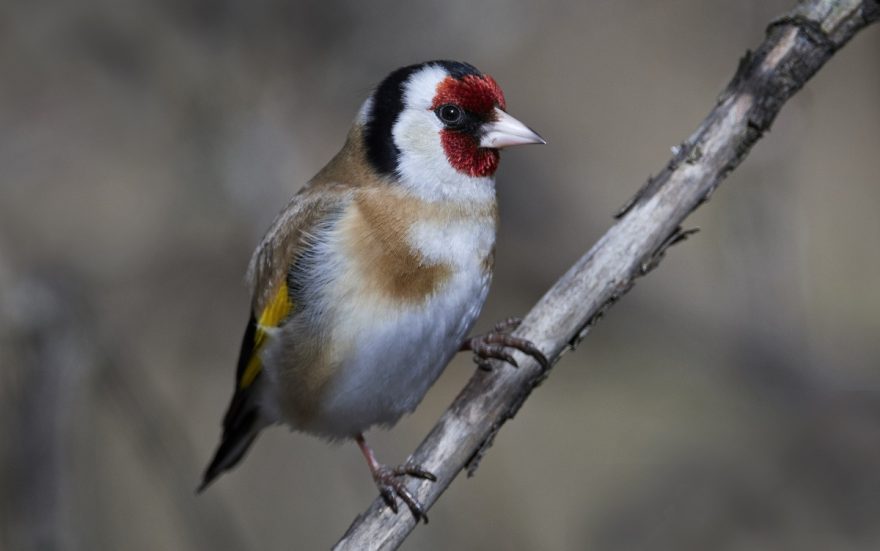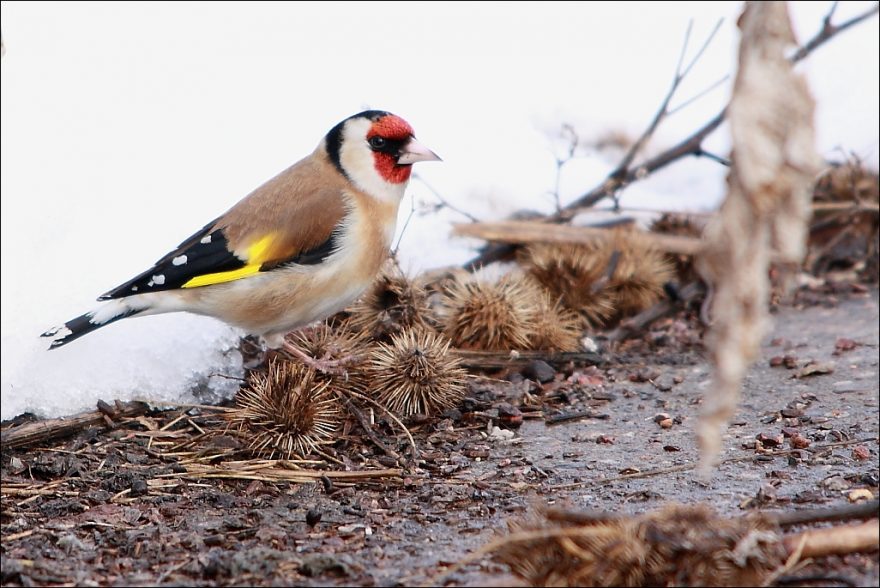The European Goldfinch is a commonly kept finch native to Europe, North Africa and western Asia. The species has been introduced to Australia, New Zealand and parts of South America. Worldwide they are immensely popular as caged birds thanks to their charming song and colorful plumage. They can be cross-bred with the domesticated Canary to produce Whistler Mules.

Diet & Feeding
Seed forms the basis of most finch diets. In addition to the seeds typically found in a finch/canary seed mix, oilseeds such as niger, maw, rapeseed and thistle seed are especially important to European goldfinches. Unfortunately seed is lacking in many essential vitamins and minerals which must be compensated for by introducing other foods. Green seed heads or sprouted seed increases the nutritional value of seed and is a cheap way to improve your bird’s health.
Kale, bok choy, cucumber and finely grated apple, carrot, corn or broccoli are much loved by goldfinches. Spinach can also be given, but only sparingly as it can contribute to calcium deficiency. Commercial soft finch food mixes (especially Egg and Biscuit mixes) can also be provided for an added nutrient boost, particularly when breeding. Some live food may be consumed but is not required to achieve strong breeding success.
Housing & Compatibility
European Goldfinches can be kept and bred in canary-style cages. In the interest of bird welfare, Aviculture Hub does not encourage birds to be kept and bred in cages, so this article will focus on housing goldfinches in an aviary situation.
Their ideal environment is a large well planted aviary. Goldfinches are destructive to foliage, so a careful balance between the number of birds and the growth rate of plants must be achieved. Their preferred nesting location is a shrub or dry bush well above ground level.
Goldfinches are best housed a single pairs, either alone or as part of a mixed collection. They are generally quite placid and can be housed with most finch species, doves, quail and Neophema parrots. They can be boisterous and stress other birds in confined spaces, so it’s important that the aviary is large enough that birds are able to get a reasonable distance away from one another when necessary. European goldfinches housed with Canaries, Siskins, Chaffinches, Linnets, Greenfinches, Twites and Redpolls will produce hybrids. Most hybrids are infertile.
Breeding
Goldfinches will construct a cup shaped nest in a shrub, dry brush or a commercial canary-style nest using grass and feathers. A new nest will be constructed for each new clutch.
A hen will produce 2 to 3 clutches per year, after which nests should be removed to prevent over-breeding. Clutches consist of between 3 and 6 eggs – with good hatch rates. The hen will incubate the eggs for 13 to 14 days, without any assistance from the cock. Young birds will fledge at three weeks of age and be fully independent at six weeks of age.
Nest inspections are reasonably well-tolerated. Furthermore, it is generally safe to leave the young birds with their parents after they become independent – but only in an aviary situation.

Trapped Birds
In areas where the European Goldfinch has been introduced, it may be possible to legally purchase wild-trapped birds for a lower price than aviary-raised birds. Trapped birds can take a significant amount of time to “calm down” enough to be successfully bred in an aviary and will generally not adapt to a cage.
Wild caught birds often suffer high rates of mortality due to stress, parasites and disease. Newly acquired birds should be isolated from other birds for at least six months and treated with preventative medications. Gizzard worm, scaly leg mites, air sac mites and megabacteria are known to affect feral populations in Australia and New Zealand.
Health
A strict worming and parasite control regime is essential to ensure the long-term health of any finch collection. European goldfinches can to live up to 8-12 years.